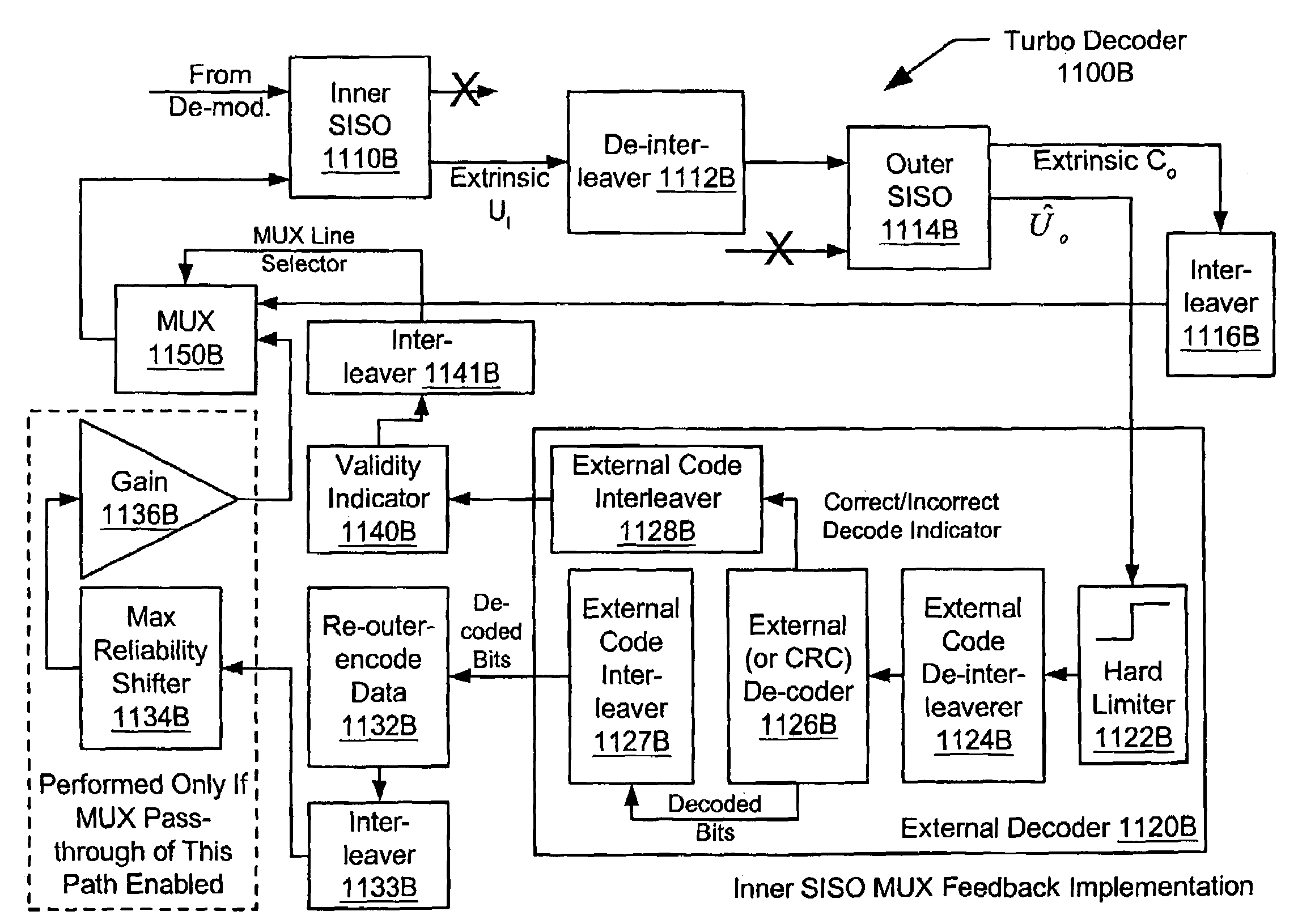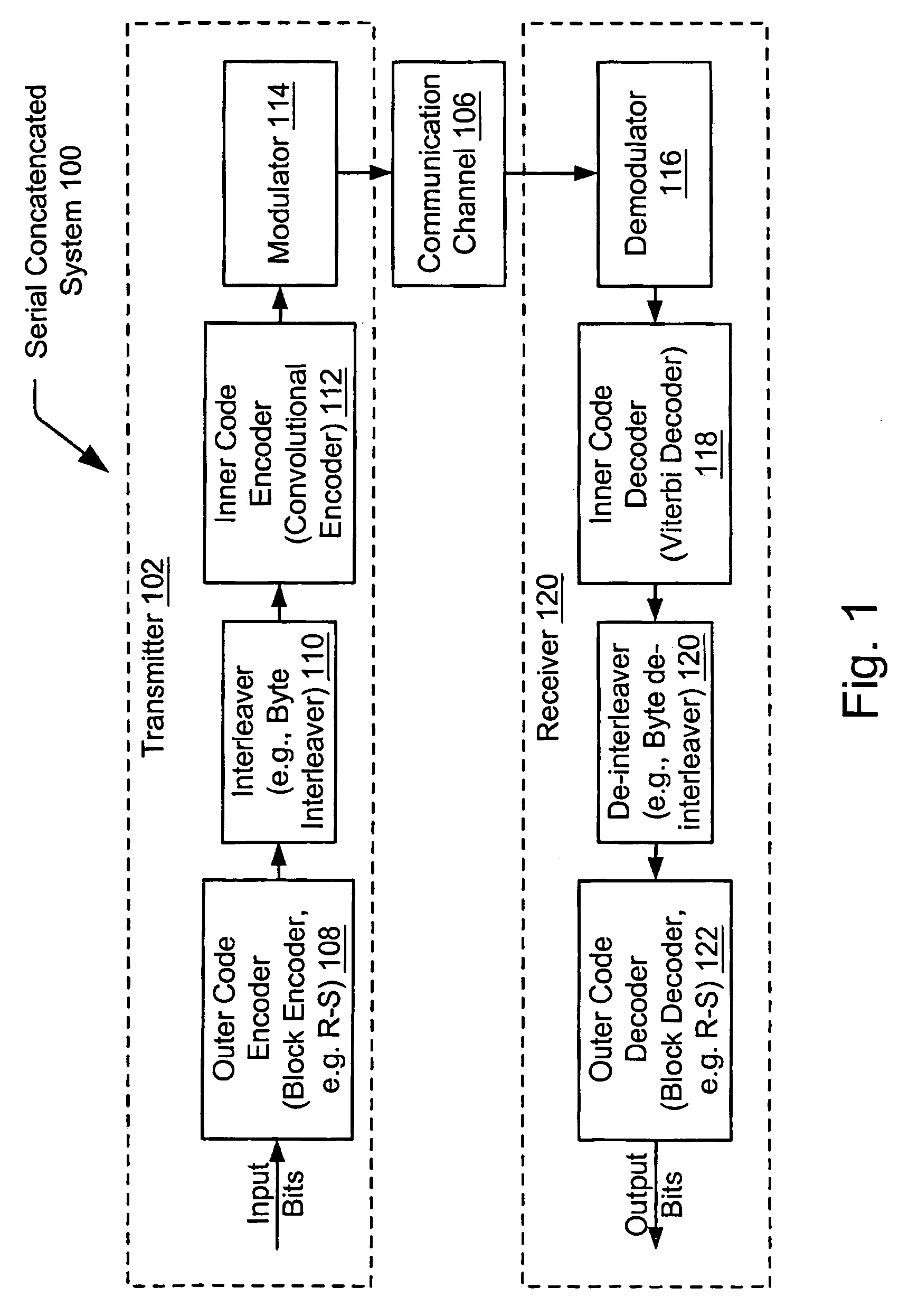Iterative decoder employing multiple external code error checks to lower the error floor
a decoding and error floor technology, applied in the field of iterative decoding performance of communication systems, can solve the problems of not iterative decoding of serial concatenated codes, inability to achieve the optimal overall composite system for a given concatenated code, and often limited transmitter power and spectrum availability of communication systems
- Summary
- Abstract
- Description
- Claims
- Application Information
AI Technical Summary
Benefits of technology
Problems solved by technology
Method used
Image
Examples
Embodiment Construction
[0042]One example of digital video processing is that employed using the motion picture expert group (MPEG) standard. In the MPEG standard, a block consists of 188 bytes of data. In one embodiment of the present invention, the turbo decoding system operates on nominally 10 MPEG blocks of source data in a turbo decoder frame. A cyclic redundancy check (CRC) check is contained within each of these MPEG blocks. One purpose of the CRC check is to ensure that the MPEG decoder has advance knowledge of whether the bits that it is receiving are correct or not. A turbo decoder operable in accordance with the present invention is able to take advantage of the redundancy of the CRC to further improve the decoding performance. During iterations before the final iteration, this improvement in decoding performance is achieved.
[0043]From one perspective, when a block covered by a CRC (henceforward, a “CRC block”) decodes correctly, it may be assumed with a relative high degree of certainty that th...
PUM
 Login to View More
Login to View More Abstract
Description
Claims
Application Information
 Login to View More
Login to View More - R&D
- Intellectual Property
- Life Sciences
- Materials
- Tech Scout
- Unparalleled Data Quality
- Higher Quality Content
- 60% Fewer Hallucinations
Browse by: Latest US Patents, China's latest patents, Technical Efficacy Thesaurus, Application Domain, Technology Topic, Popular Technical Reports.
© 2025 PatSnap. All rights reserved.Legal|Privacy policy|Modern Slavery Act Transparency Statement|Sitemap|About US| Contact US: help@patsnap.com



